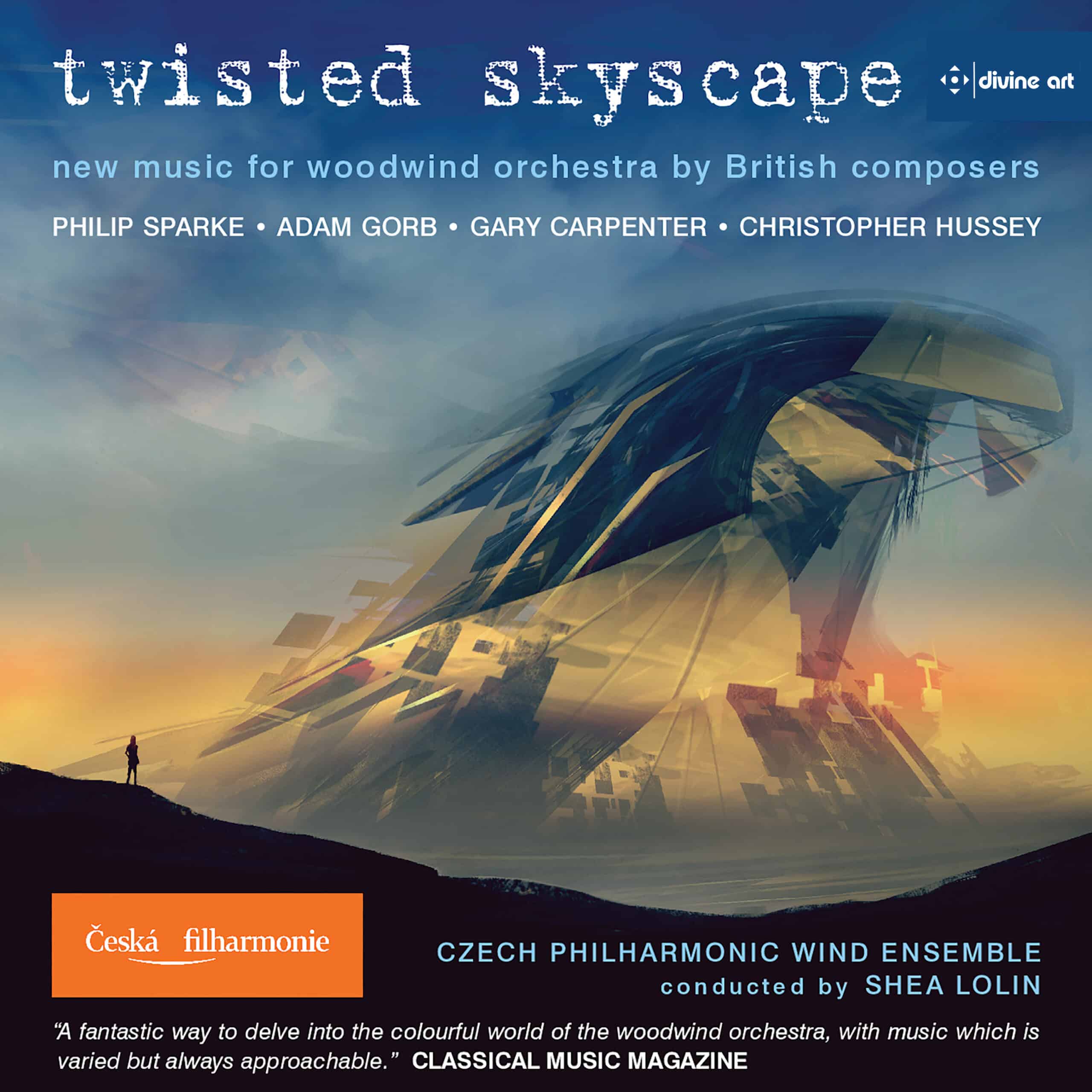InfoDad
Although strings and piano tend to get most of the attention in contemporary chamber-music performance, there is some very worthwhile music for winds out there as well – including pieces that may reach beyond the core audience that actively seeks out works by today’s composers. The four British composers whose works for winds are heard on a new Divine Art recording (originally released a decade ago on a label called Legni Classics) all have a sure sense of style, write idiomatically for woodwinds, and seem more concerned with the old-fashioned notion of connecting with an audience that with producing music solely for the cognoscenti. The composers are not well-known, and neither is the music: only one piece, Overture for Woodwinds by Philip Sparke (born 1951), has been recorded before. This is the work that opens the disc, and it makes a suitable curtain raiser: nicely blended, effectively paced, and not over-long (six minutes). Like the other pieces here, it is scored for a comparatively large woodwind ensemble (18 players), but retains a chamber-music feel by avoiding lengthy passages of massed instruments. After this, Pantomime by Gary Carpenter (born 1951) is offered: a five-movement suite, it includes a pleasant “Cavatina,” some not-quite-danceable dances, and a march – and culminates in a waltz labeled “Depravity,” which is a bit of an overstatement for the amusing movement. The fourth movement, “Grand March (of the Chief Executive),” which starts with an actual bit of Mahler before becoming anything but grand, is especially clever. The work as a whole is accessible and well-written for the woodwind group. It is followed on the CD by the first of two works by Christopher Hussey (born 1974): Dreamtide, a three-movement piece (originally for mixed choir, arranged for woodwinds by the composer) that tries a bit too hard to be impressionistic but is nicely scored, with some good contrasts of tempo and rhythm. Next is the three-movement Battle Symphony by Adam Gorb (born 1958), which is a bit like an update of Heinrich Ignaz Franz Biber’s 1673 Battalia – an impression made immediately when the first movement opens with a “Flourish” that is definitely in tune (so to speak) with Biber’s time. Gorb includes non-Biber-ish elements such as “Soldiers’ Drunken Panic,” but “Lament for the Dead,” “Triumphal Dance” and other sections fit right in with an old-style battle. And the orchestration, while it has modern touches here and there, is for the most part determinedly old-fashioned. Indeed, all these woodwind works hew fairly closely to older compositional styles than the avant-garde ones so often favored in contemporary chamber music; as a result, all are accessible to any audience. The composers do know how to speak a more-modern language when they wish, however. The final work on the disc, Hussey’s three-movement Twisted Skyscape, may not push the winds into uncomfortable sonic distortions, but its aural landscape and frequent lapses into dissonance leave no doubt about its modern provenance. This disc is altogether successful in exposing listeners to new and interesting woodwind works that are played to excellent effect by the very fine musicians of the Czech Philharmonic Wind Ensemble under Shea Lolin.
@divineartrecordingsgroup
A First Inversion Company
Registered Office:
176-178 Pontefract Road, Cudworth, Barnsley S72 8BE
+44 1226 596703
Fort Worth, TX 76110
+1.682.233.4978












